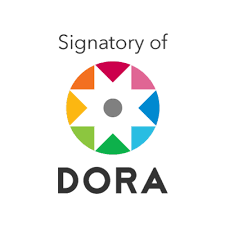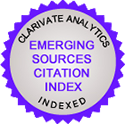DECLARATION OF ETHICS AND GOOD PRACTICES
The production of the magazine Transport and Territory is committed to the scientific community in order to ensure the ethics and quality of the articles published and is governed by the Principles of Transparency and Good Practices in Academic Publications established by the Committee on Publication Ethics (COPE). At the same time, it guarantees scientific rigor and transparency in the development of the entire editorial process, ensuring an adequate response to the needs of authors and readers, guaranteeing the quality of published manuscripts, protecting and respecting their content and integrity. Likewise, it is committed to provide free access to its contents, promotion of debate and cooperative disciplinary development.
In compliance with these good practices, our journal is based on standards of ethics and international quality established to avoid fraud and plagiarism through specific online monitoring mechanisms and software. For this, the manuscripts will be original and unpublished, a requirement that the author must manifest from the beginning of the editorial process.
In order to ensure the academic and editorial quality of the journal, the Drafting Committee reserves the right to approve or reject material submitted, both in the initial review instances (before being submitted for evaluation), and as final (after evaluation process). All decisions will be determined by strict academic arguments and respect for the regulations established by the journal.
Publishers' responsibility
The editor and the Drafting Committee act in accordance with the criteria of equality, objectivity and impartiality, without any discrimination on grounds of religion, sexual orientation, gender, political, ethnic or geographical origin of the authors. Confidentiality is guaranteed at all times during the evaluation process, the anonymity of the evaluators and the authors, the content evaluated, the reasoned report issued by the evaluators and any other communication issued by the editorial, advisory and scientific councils if applicable. In the same way, the confidentiality will be maintained before possible clarifications, claims or complaints that an author wishes to send to the editor, to the Drafting Committee or to the evaluators of the article.
Likewise, the editor and the Drafting Committee undertake to publish corrections, clarifications, retractions and apologies when necessary.
Responsibility of the evaluators
The evaluations will be carried out with objectivity and within a period no longer than four months, with a treatment of absolute confidentiality. In addition, if for some reason the specialist is unable to evaluate the article, the author will be kept informed of this situation and the subsequent editorial process.
The evaluations will be carried out by professionals, Argentine or foreigners, who have a training equivalent or superior to that of the authors. They will recommend or not the publication, being able to suggest adjustments and corrections. The evaluation will be done following the double blind modality. Therefore, when the reviewers receive the article to be evaluated, the identity of the authors will be kept anonymous. Likewise, when verifying the submission of the evaluations to the authors, the identity of the reviewers will also remain anonymous, unless they express their will to the contrary. The evaluators will inform opportunely and confidentially to the editor or Drafting Committee the possible evidences of plagiarism. Due to the unpublished and original nature of the texts, they will not be able to make use of them beyond the context of the evaluation.
In the event of a possible conflict of direct or indirect interests of the arbitrators with respect to the manuscript, the latter must inform the editor of the reasons for the occurrence of said inconveniences. In this sense, the arbitrator can renounce the evaluation if he or she considers it necessary and must communicate it in writing to the editing body.
Responsibility of the authors
The authors guarantee that the academic proposal is not being evaluated or has been submitted and / or evaluated in another publication, and that the data is real and authentic. The author must inform the editor of any possible conflict of interest that may harm the publication process. Likewise, in the case of shared authorship, it must be established that there was full consensus among all the parties involved and it must be ensured that the article has not been previously presented or published in other means of dissemination. In addition, in case of reproduction of tables, figures or images that require special permission, the authors must provide the relevant authorizations to the publishing body. Likewise, in the event that the editor or Editorial Committee requires a review of media or data records and analysis related to the text presented, the author is bound.
Measures to be taken in case of unethical behavior and / or faults
In the case of detecting unethical behavior and / or some type of fault, this situation must be reported to the editor - preferably in writing - providing the corresponding evidence on which the evaluator or the person who detects the fault is based. In the event that the Drafting Committee decides to investigate, the process will be carried out confidentially. For his or her part, the author will be duly informed of the situation and may make an answer according to the complaint made.
Likewise, the editor may choose to publish an editorial page indicating the incorrect performance, explaining the evidence obtained in the research process or, if necessary, remove the article from the magazine's website. In addition, the editor may suspend the author's participation in the journal for as long as he considers appropriate.
1.jpg)

3.png)























